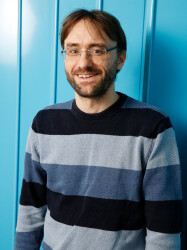Bioenergy - SEF06
Aims
• To develop an understanding of the range of issues associated with biorenewables
(bio-energy, bio-chemicals and bio-materials), production and use.
• To be exposed to a wide range of conventional, advanced and emerging technological
options for the production, pre-conversion, conversion and end use of biomass.
• To acquire the skills needed to evaluate the impacts and opportunities (environmental, economic and social) for deploying biorenewables for climate mitigation and adaptation, energy security and rural development.
• To develop the skills required to identify sustainable solutions for the exploitation of the biosphere for ecosystem and human services relevant to bioenergy.
• To provide an introduction to specialist study opportunities and industrial applications in the field of bio-energy.
Role
Lecturer

